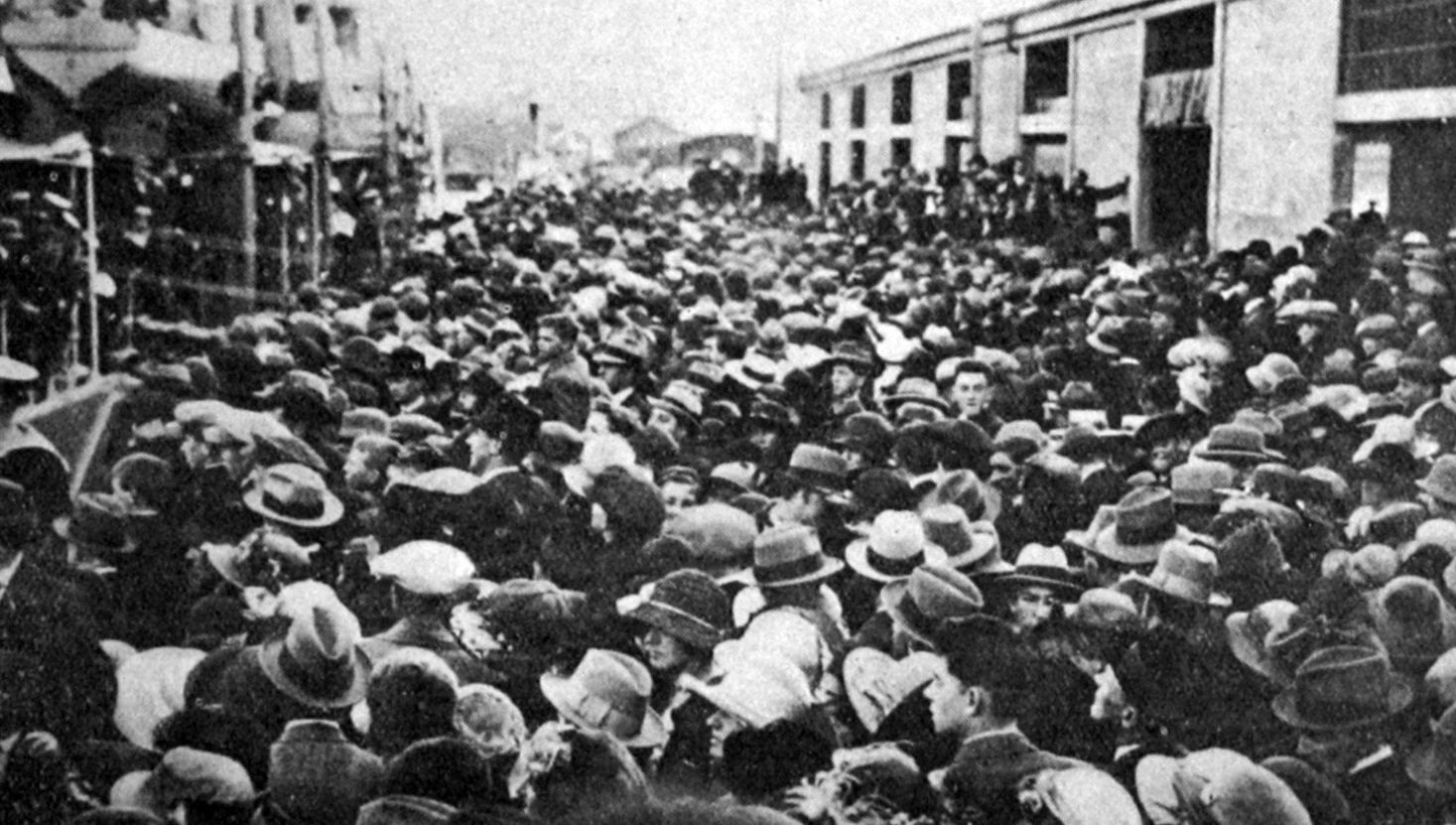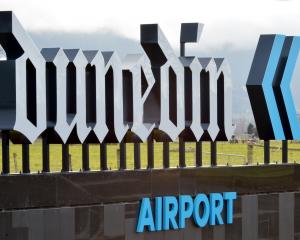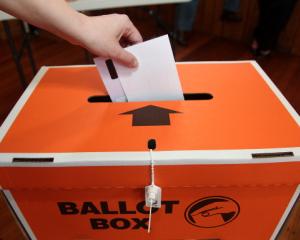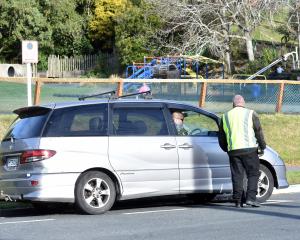
In the morning she was visited by about 460 children from the schools from Palmerston to Purakanui and also from the North-East Harbour, Broad Bay, Brighton and Kuri Bush. The children from the north line travelled by special train. The vessel was open for inspection by the general public from 2 till 6pm, and the same hours will be observed today. A searchlight display, which attracted a great deal of attention, was given by the torpedo staff of HMS Dunedin from 9 until 9.30 last evening. There were about 200 interested spectators on the wharf. Today, the anniversary of the accession of King George V to the Throne, "dressed ship" will be the order on HMS Dunedin.

Ship casts off its painter
Yesterday morning one of the men who was engaged in painting the side of HMS Dunedin near the bows fell from a sling into the water, between the vessel and the wharf. He had a short swim in dirty water to a rope which one of his shipmates lowered, and he landed without suffering anything worse than a ducking.
Excluded from ship visit
To the editor: Sir, The Railways Department is to be congratulated upon the enjoyable holiday it made possible for the children of the various schools both primary and secondary, which enabled them, at a minimum cost, to visit the warships at Dunedin. As the fares were moderate all who, according to instructions, were permitted to travel on the trains, took advantage of them. But in my estimation there was one deplorable condition. The instructions given to the school committees were as follows: "Only scholars, teachers and members of school committees will be permitted to travel on the special school excursion trains." Further on they stated: "Tickets at holiday excursion fares will be issued on suitable dates to enable ordinary passengers to visit the ships." Why should these benefits only be given to boys and girls who are able to take advantage of our secondary schools? What about those who have left the primary schools within the last two or three years, and through no fault of their own have not been able to take advantage of a secondary education, being the sons and daughters of the poorer class, many of them having to help on the farms and others to work in the various industries in our towns etc.? These boys and girls have to work hard and do not enjoy the pleasures of life as do the scholars attending our secondary schools, and should they desire to see the warships they are asked to pay over four times the price paid by those who are enabled to take advantage of a secondary education. Any concessions made by the Railways Department should be such as can be utilised by the poor and rich alike and provision should be made to this end.
— I am, etc, J.C. Smith, Lovell's Flat, May 2.
— ODT, 6.5.1924 (Compiled by Peter Dowden)












